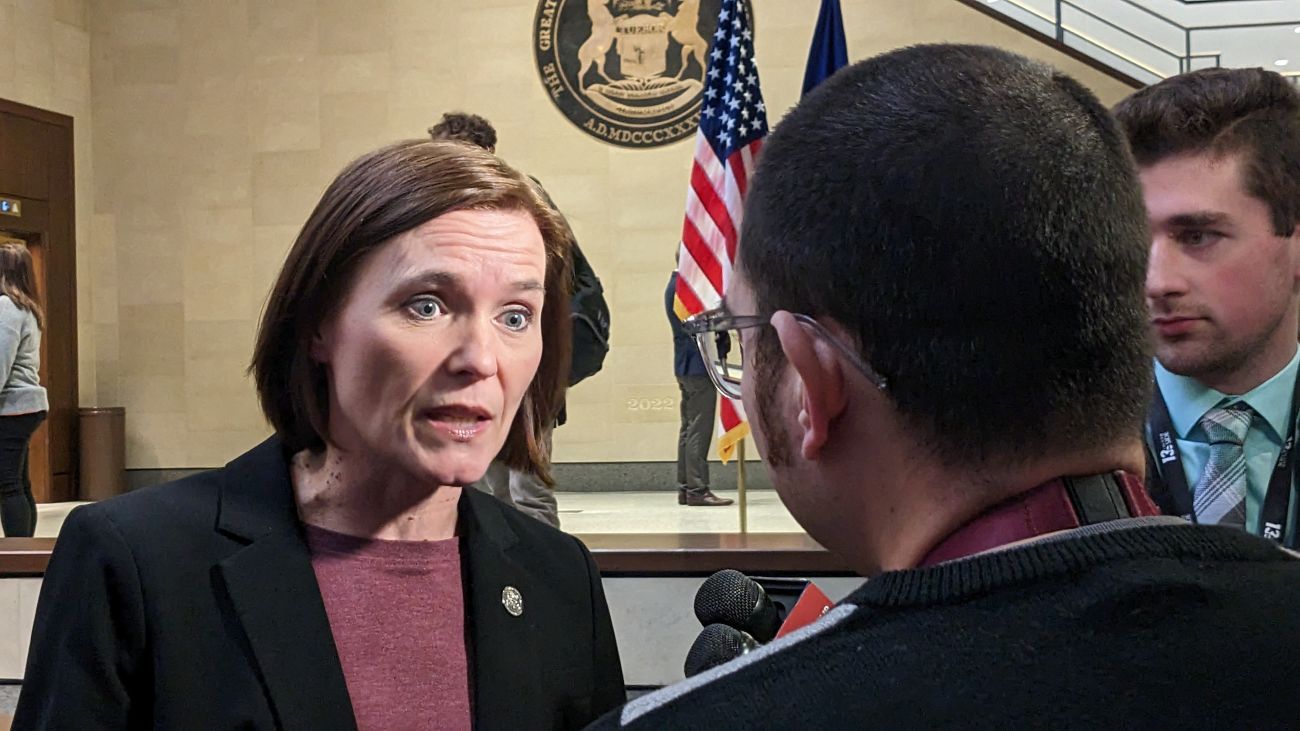Michigan Senate Dems threaten to sue GOP-run House over bills in limbo

- Michigan Senate plans to sue state House over refusal to send previously approved bills to Gov. Gretchen Whitmer
- House Democrats did not send the bills to Whitmer last year, and rather than doing so, new Republican leadership ordered a ‘legal review’
- Bills would change correction officer retirement plans, public employee health care and allow Detroit museums to seek a millage
LANSING — Michigan’s Democratic-led Senate on Wednesday authorized leadership to ‘commence legal action” to compel the Republican-led House “to fulfill its constitutional duty” and send a series of approved bills to the governor.
At issue are nine bills that passed both chambers of the Legislature last year but were not sent to Gov. Gretchen Whitmer for signature before Republicans took control of the House this month.
It’s not clear why former House Speaker Joe Tate, D-Detroit, did not send Whitmer the bills when he could. New House Speaker Matt Hall, R-Richland Township, ordered a “legal review” rather than advance them.
The bills include plans to place correction officers in the state police pension system, require governments to pay a larger share of employee health care premiums, exempt public assistance from debt collection and allow Detroit historical museums to propose a millage.
The potential Senate lawsuit shows Democrats “will not tolerate illegal partisan games that evade our state constitution,” Senate Minority Leader Winnie Brinks, D-Grand Rapids, said in a floor speech.
Related:
- Michigan Democrats’ pension, retirement bills in limbo amid GOP ‘legal review
- ‘Michigan's economy is on the line,’ Gretchen Whitmer warns at Detroit Auto Show
- Michigan lame-duck Legislature: House ends year with tears, fingerpointing
She urged Hall to avoid a legal fight by sending the bills to Whitmer.
“I hope he makes the right choice,” Brinks said.
If he doesn’t, Brinks is “prepared to act,” spokesperson Rosie Jones told Bridge Michigan.
The legal threat comes just weeks into the newly divided state government, where Republicans took control of the House this month to end a two-year Democratic trifecta.
Democrats currently control the state Senate with a 19-18 majority, while Republicans have a House majority with 58 of 110 seats.
Later Wednesday, Hall accused Brinks of "wasting taxpayer dollars on political lawsuits" and suggested the House may be less likely to take up Senate bills this term "if that's the way she approaches this."
The legislation in question was being processed by clerks on Jan. 9 when Hall was formally handed the gavel as the new House Speaker. He then told the clerks to halt the process and ordered a legal review of the situation —a position he reiterated Wednesday.
"There's just a lot of legal and constitutional questions," he again told reporters, "and the more we look into it, the more we find, so we're going to do a thorough legal review. But, the Senate has no role in telling the House what to do."
According to the Michigan Constitution, "Every bill passed by the Legislature shall be presented to the governor before it becomes law, and the governor shall have 14 days” to decide whether to sign or veto it.
Staff reporter Jordyn Hermani contributed to this story.
See what new members are saying about why they donated to Bridge Michigan:
- “In order for this information to be accurate and unbiased it must be underwritten by its readers, not by special interests.” - Larry S.
- “Not many other media sources report on the topics Bridge does.” - Susan B.
- “Your journalism is outstanding and rare these days.” - Mark S.
If you want to ensure the future of nonpartisan, nonprofit Michigan journalism, please become a member today. You, too, will be asked why you donated and maybe we'll feature your quote next time!




